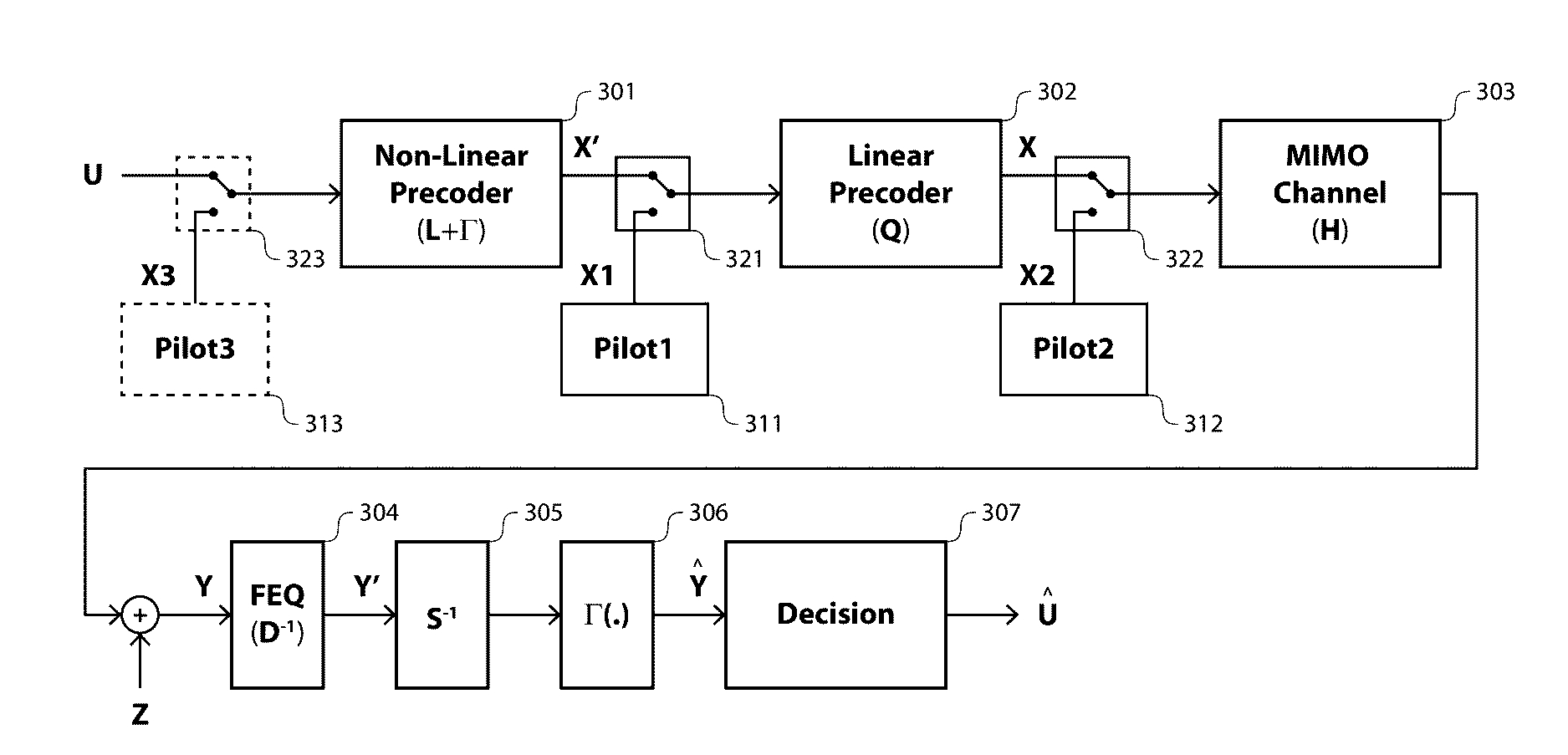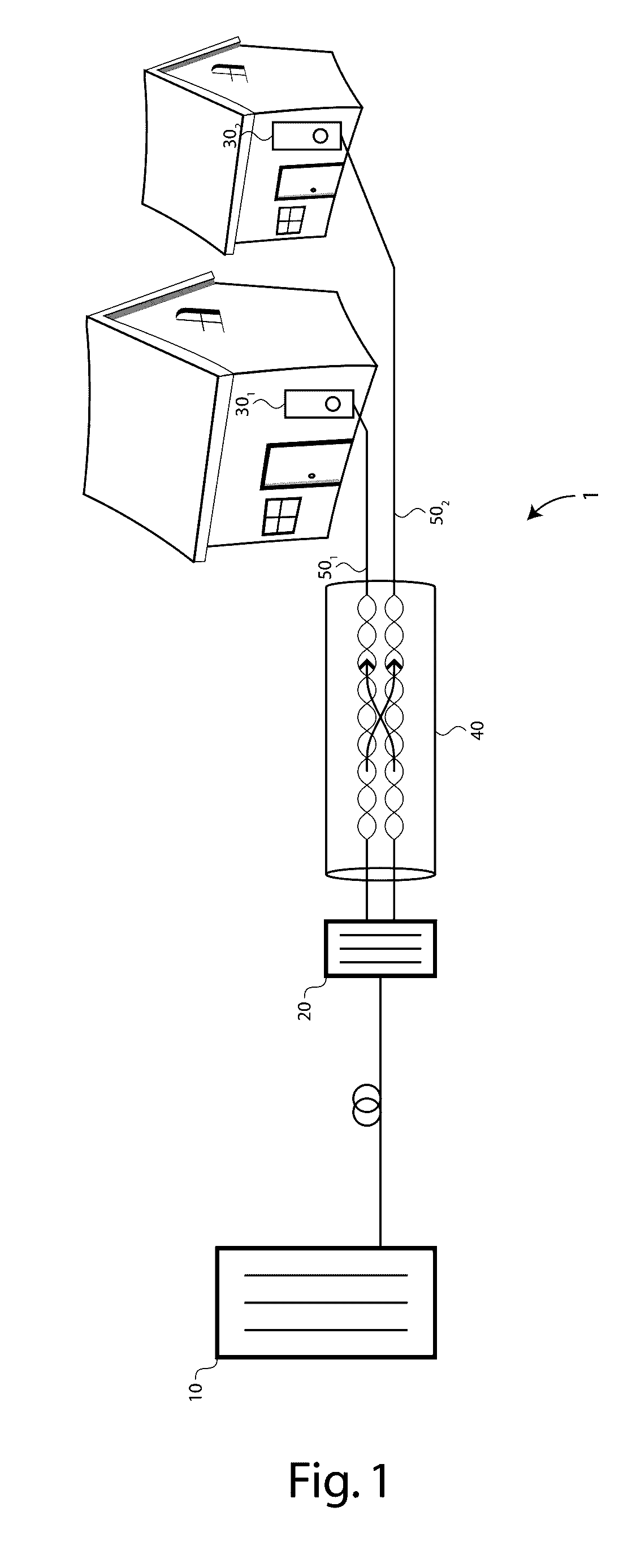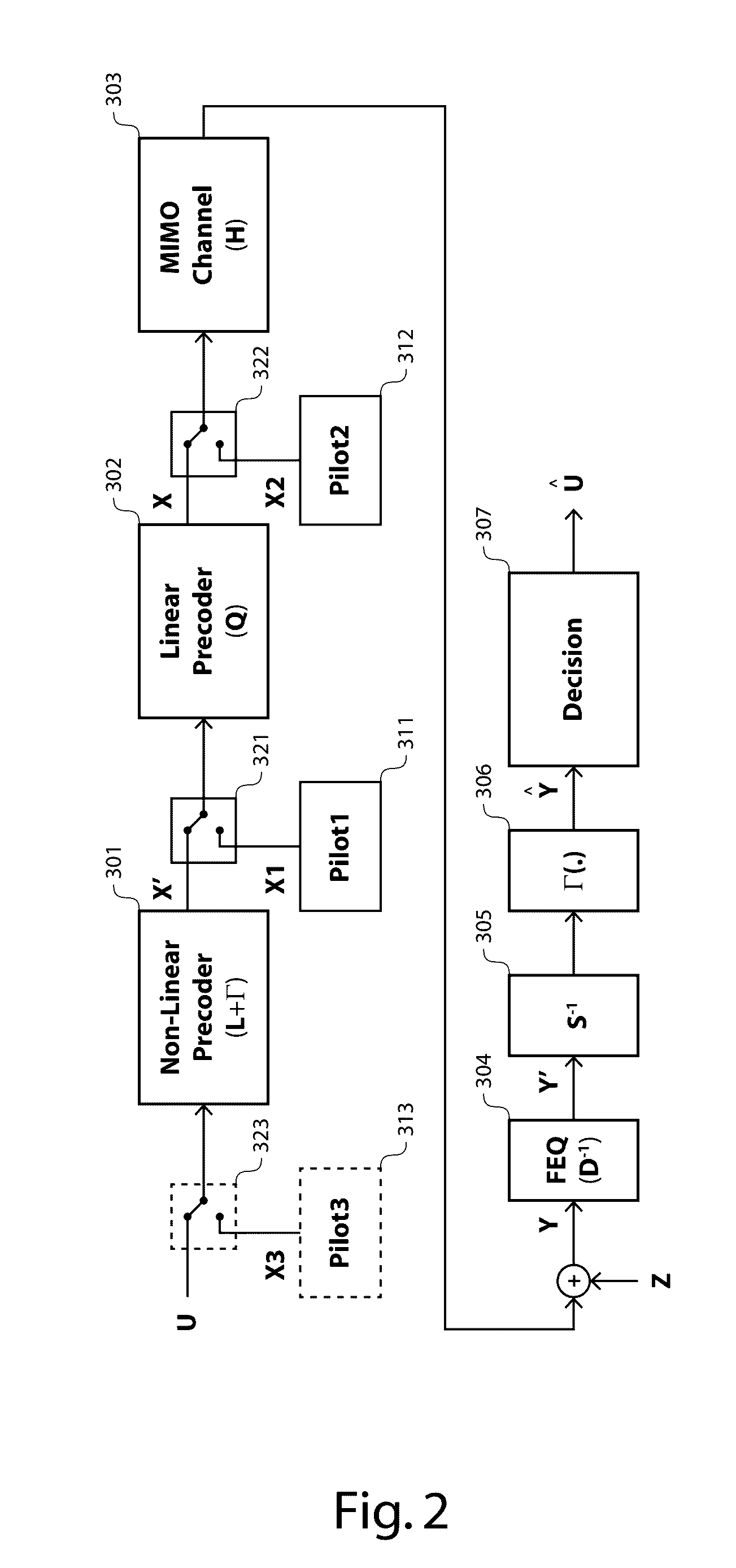Non-linear precoder with separate tracking
a precoder and non-linear technology, applied in the field of crosstalk mitigation, can solve the problems of limited vectoring gain, severe signal distortion, unfair distribution of bit rate to different users, etc., and achieve the effect of reducing complexity
- Summary
- Abstract
- Description
- Claims
- Application Information
AI Technical Summary
Benefits of technology
Problems solved by technology
Method used
Image
Examples
Embodiment Construction
[0069]There is seen in FIG. 1 an access plant 1 comprising a network unit 10 at a CO, a DPU 20 coupled via one or more optical fibers to the network unit 10, and further coupled via a copper loop plant to Customer Premises Equipment (CPE) 30 at various subscriber premises.
[0070]The copper loop plant comprises a common access segment 40, wherein the subscriber lines are in close vicinity with each other and thus induce crosstalk into each other, and dedicated loop segments 50 for final connection to the subscriber premises. The transmission media is typically composed of copper Unshielded Twisted Pairs (UTP).
[0071]The DPU 20 comprises a vectoring processing unit for jointly processing the data symbols that are being transmitted over, or received from, the loop plant in order to mitigate the crosstalk induced within the common access segment and to increase the communication data rates achievable over the respective subscriber lines.
[0072]There is seen in FIG. 2 a conceptual represent...
PUM
 Login to View More
Login to View More Abstract
Description
Claims
Application Information
 Login to View More
Login to View More - R&D
- Intellectual Property
- Life Sciences
- Materials
- Tech Scout
- Unparalleled Data Quality
- Higher Quality Content
- 60% Fewer Hallucinations
Browse by: Latest US Patents, China's latest patents, Technical Efficacy Thesaurus, Application Domain, Technology Topic, Popular Technical Reports.
© 2025 PatSnap. All rights reserved.Legal|Privacy policy|Modern Slavery Act Transparency Statement|Sitemap|About US| Contact US: help@patsnap.com



